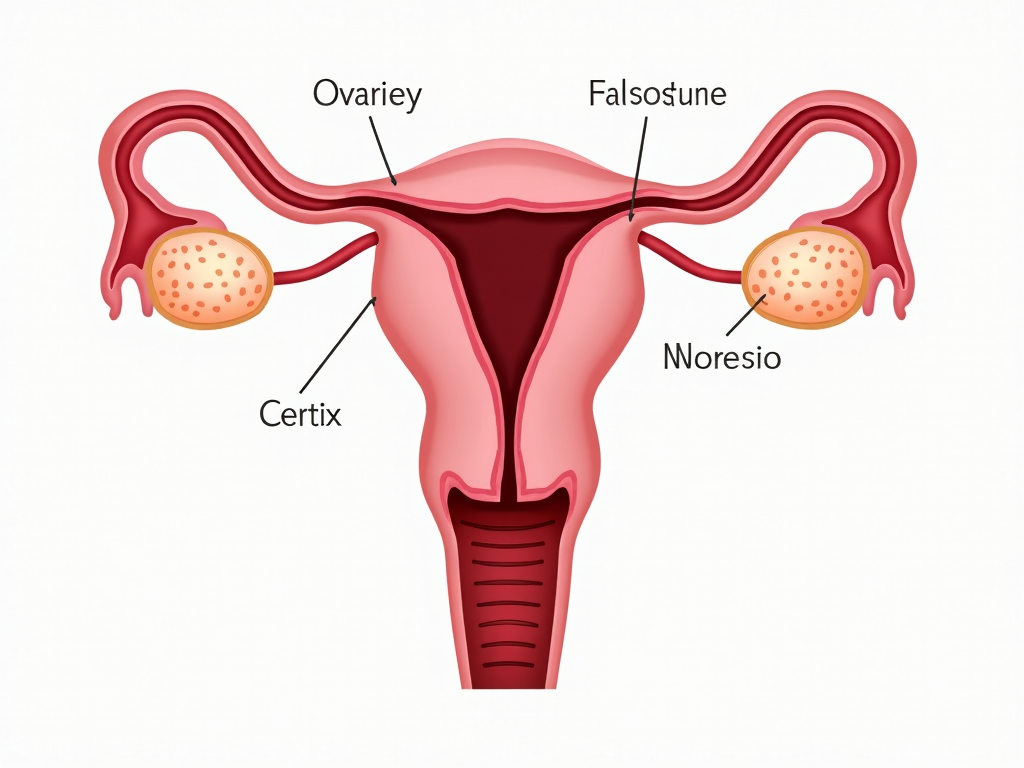Understanding Infertility: Causes and Diagnosis
June 25, 2025, 7:21 a.m.
Overview
Infertility is a challenge faced by many couples, defined as the inability to conceive after one year of unprotected intercourse. This article provides a detailed look at the causes of infertility in both men and women, the diagnostic processes involved, and an introduction to the various treatment options available. With insights from medical experts and real-life experiences, we aim to offer hope and guidance to those navigating this difficult journey.

What is Infertility?
Infertility is not just a woman's issue; it affects both men and women equally. According to the World Health Organization, about 15% of couples worldwide experience infertility. It's important to understand that infertility doesn't mean you can never have children; it just means you might need some help to conceive.
Causes of Infertility
Let's break this down into causes for women and men.
Causes in Women
- Ovulation disorders: These account for about 25% of infertility cases. Conditions like polycystic ovary syndrome (PCOS) can prevent regular ovulation.
- Fallopian tube damage: This can be caused by infections, endometriosis, or previous surgeries.
- Endometriosis: When tissue similar to the lining of the uterus grows outside it, causing pain and potentially infertility.
- Uterine or cervical issues: Fibroids, polyps, or abnormalities in the shape of the uterus can affect implantation.
- Age: As women get older, the quality and quantity of their eggs decline.
Research from Johns Hopkins Medicine indicates that ovulation disorders are a leading cause of female infertility.

Causes in Men
- Low sperm count: Fewer than 15 million sperm per milliliter of semen is considered low.
- Poor sperm motility: If sperm can't swim properly, they can't reach the egg.
- Abnormal sperm shape: This can affect the sperm's ability to penetrate the egg.
- Ejaculation issues: Problems like retrograde ejaculation, where semen enters the bladder instead of exiting through the penis.
- Hormonal imbalances: Low levels of testosterone or other hormones can affect sperm production.
Unexplained Infertility
In about 10-20% of cases, no specific cause can be found. This can be particularly frustrating for couples, but it doesn't mean there are no treatment options.
Diagnosing Infertility
Diagnosis typically involves a series of tests for both partners.
For Women
- Blood tests: To check hormone levels, such as FSH, LH, and progesterone.
- Ultrasound: To look at the ovaries and uterus for any abnormalities.
- Hysterosalpingogram (HSG): An X-ray test to check if the fallopian tubes are open.
- Laparoscopy: A minimally invasive surgery to look inside the abdomen for issues like endometriosis.

For Men
- Semen analysis: To check sperm count, motility, and morphology.
- Hormone testing: To check levels of testosterone and other hormones.
- Genetic testing: In some cases, to look for chromosomal abnormalities.
- Imaging: Ultrasound or MRI to check for structural problems.
It's important to note that diagnosis can take time, and it might involve multiple tests. Patience is key.
Treatment Options
Treatments vary depending on the cause of infertility.
- Lifestyle changes: Sometimes, simple changes like losing weight, quitting smoking, or reducing alcohol can improve fertility.
- Medications: Fertility drugs like Clomid can stimulate ovulation in women. For men, medications might be used to improve sperm production.
- Surgery: To correct structural issues, like removing fibroids or repairing blocked fallopian tubes.
- Assisted Reproductive Technologies (ART): This includes procedures like intrauterine insemination (IUI) and in vitro fertilization (IVF).
- Fertility hormones: Hormones like FSH and LH are often used in ART to stimulate egg production.
The American Society for Reproductive Medicine provides detailed information on various fertility treatments.

It's crucial to discuss all options with a fertility specialist to determine the best course of action.
The Emotional Journey
Infertility can be emotionally taxing. Feelings of guilt, shame, and isolation are common. It's important to seek support, whether from friends, family, or professional counselors. Many couples find comfort in joining support groups where they can share their experiences with others going through similar challenges.

Personal Insight
Consider the story of Emily and Mark. After two years of trying to conceive, they were diagnosed with unexplained infertility. The uncertainty was overwhelming, but they found solace in a support group and eventually conceived through IVF. Their journey highlights the importance of perseverance and seeking help.
Summary
Infertility is a complex issue with various causes and treatments. Understanding the underlying factors and available options is the first step toward finding a solution. With advances in medical science and a supportive network, many couples can achieve their dream of parenthood.